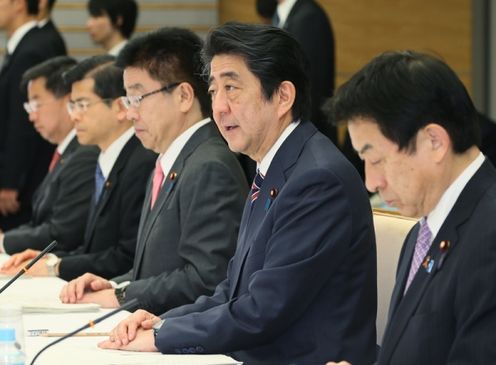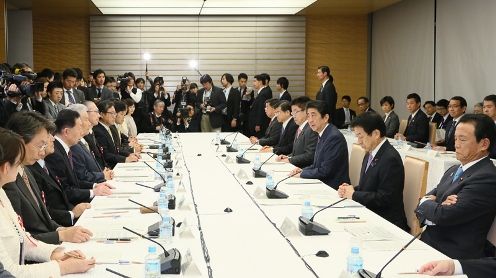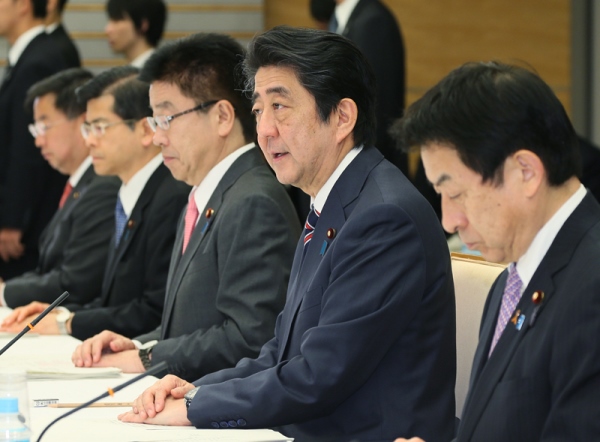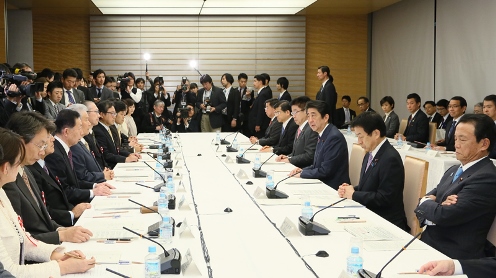Home > News > The Prime Minister in Action > December 2016 > Council for the Realization of Work Style Reform
The Prime Minister in Action
Council for the Realization of Work Style Reform
December 20, 2016

Photograph of the Prime Minister delivering an address (1)

Photograph of the Prime Minister delivering an address (2)
[Provisional Translation]
Prime Minister Shinzo Abe held the fifth meeting of the Council for the Realization of Work Style Reform, at the Prime Minister’s Office.
At the meeting, the draft government guidelines on equal pay for equal work were discussed.
The Prime Minister said in his opening address,
“Today, at long last, I would like you to present and discuss the draft government guidelines on equal pay for equal work.
Since the treatment of workers in Japan takes into account a wide range of factors such as ability and experience, even I once said that the immediate introduction of equal pay for equal work would be difficult.
However, there are many women who choose to engage in non-regular employment from the latter half of their 30s for various reasons, such as because they get married, or to have more time to raise their children. I would like to improve the treatment of non-regular employees and to broaden the options for diverse work styles for women, young people, and others. To that end, I am continuing to try to find a way to introduce equal pay for equal work in Japan.
The draft government guidelines on equal pay for equal work submitted today recognize the reality that a variety of factors, each with a different essence and nature, goes into basic pay, such as pay commensurate to the work done, pay commensurate to the employee’s ability, and pay commensurate to the employee’s length of service. Taking the essence and nature of these factors into due consideration, we seek equal pay when there is no difference in the conditions, and pay that reflects the difference if there is one. While we do not accept the irrational gap in the treatment of regular versus non-regular workers, we compiled the guidelines so that they fully take into account Japan’s business customs.
The guidelines cover not only basic pay, pay rises, bonuses, and various kinds of allowances, but also education, training, and welfare. Recently, I held roundtable meetings at the Prime Minister's Office with women who are non-regular workers, and I personally asked the participants for their views. As far as possible, we have reflected these views in the guidelines. We have also incorporated many examples of what could be problematic, and what would not be problematic, to make the guidelines easy to understand, even for small- and medium-sized enterprises.
With regard to the guidelines, after hearing your views today, the Government will finalize them upon taking into consideration the views of various stakeholders and the Diet deliberations on the bill for the relevant legal revisions. We will implement them on the same day as the legal revisions are implemented. I also intend to hold discussions on the legal revisions, with the draft guidelines as a base.
I would like to express my thanks to all the experts, including Prof. Yanagawa and Prof. Mizumachi, to Ministers Kato and Shiozaki, who have carried out the preparations up until now, to the members of the four labor-management organizations, and to Chairman Sakakibara in particular, who has exerted unstinting efforts to make the necessary arrangements.”


